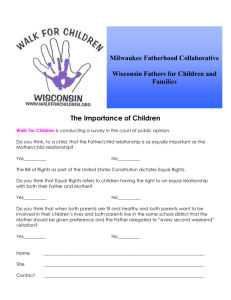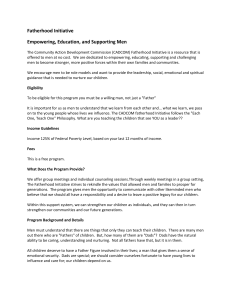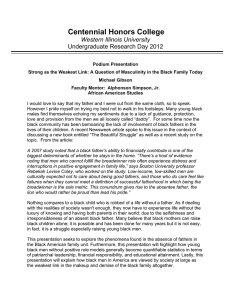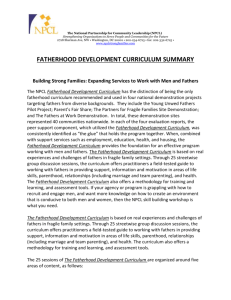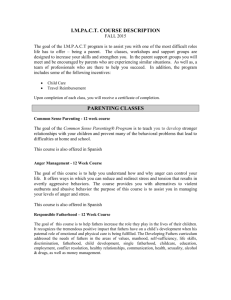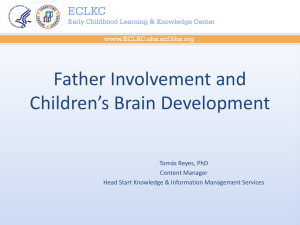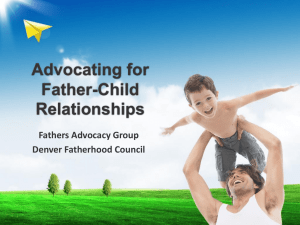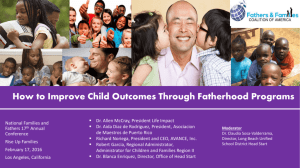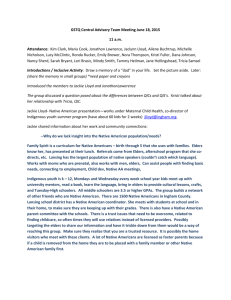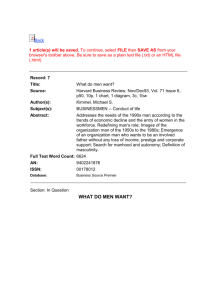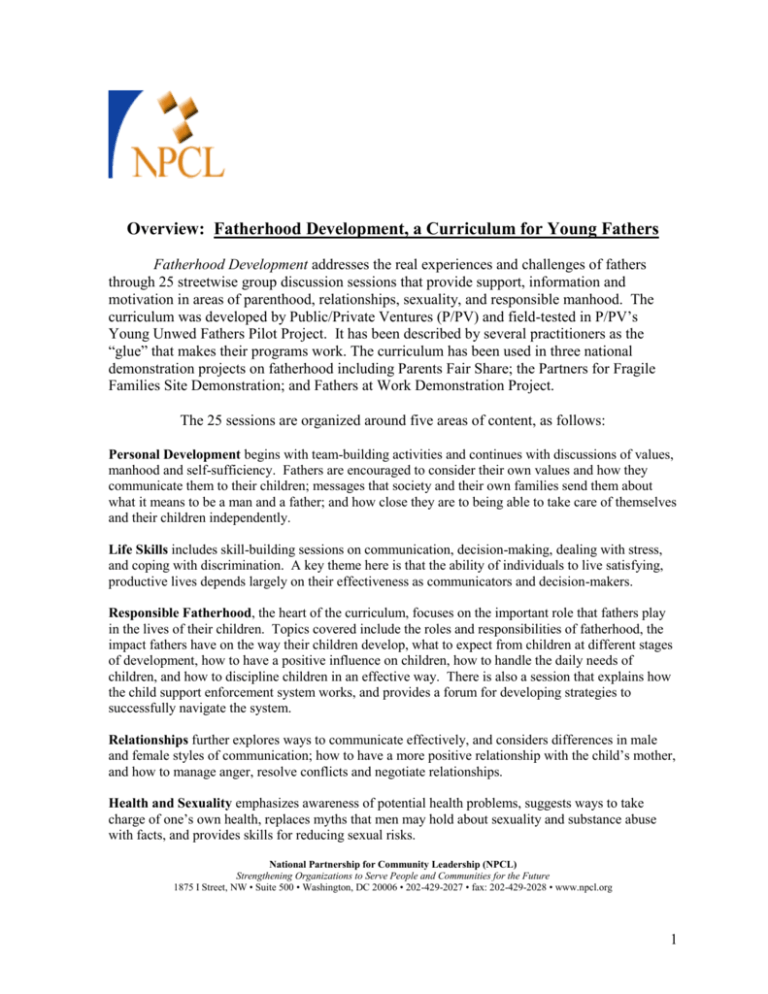
Overview: Fatherhood Development, a Curriculum for Young Fathers
Fatherhood Development addresses the real experiences and challenges of fathers
through 25 streetwise group discussion sessions that provide support, information and
motivation in areas of parenthood, relationships, sexuality, and responsible manhood. The
curriculum was developed by Public/Private Ventures (P/PV) and field-tested in P/PV’s
Young Unwed Fathers Pilot Project. It has been described by several practitioners as the
“glue” that makes their programs work. The curriculum has been used in three national
demonstration projects on fatherhood including Parents Fair Share; the Partners for Fragile
Families Site Demonstration; and Fathers at Work Demonstration Project.
The 25 sessions are organized around five areas of content, as follows:
Personal Development begins with team-building activities and continues with discussions of values,
manhood and self-sufficiency. Fathers are encouraged to consider their own values and how they
communicate them to their children; messages that society and their own families send them about
what it means to be a man and a father; and how close they are to being able to take care of themselves
and their children independently.
Life Skills includes skill-building sessions on communication, decision-making, dealing with stress,
and coping with discrimination. A key theme here is that the ability of individuals to live satisfying,
productive lives depends largely on their effectiveness as communicators and decision-makers.
Responsible Fatherhood, the heart of the curriculum, focuses on the important role that fathers play
in the lives of their children. Topics covered include the roles and responsibilities of fatherhood, the
impact fathers have on the way their children develop, what to expect from children at different stages
of development, how to have a positive influence on children, how to handle the daily needs of
children, and how to discipline children in an effective way. There is also a session that explains how
the child support enforcement system works, and provides a forum for developing strategies to
successfully navigate the system.
Relationships further explores ways to communicate effectively, and considers differences in male
and female styles of communication; how to have a more positive relationship with the child’s mother,
and how to manage anger, resolve conflicts and negotiate relationships.
Health and Sexuality emphasizes awareness of potential health problems, suggests ways to take
charge of one’s own health, replaces myths that men may hold about sexuality and substance abuse
with facts, and provides skills for reducing sexual risks.
National Partnership for Community Leadership (NPCL)
Strengthening Organizations to Serve People and Communities for the Future
1875 I Street, NW • Suite 500 • Washington, DC 20006 • 202-429-2027 • fax: 202-429-2028 • www.npcl.org
1

